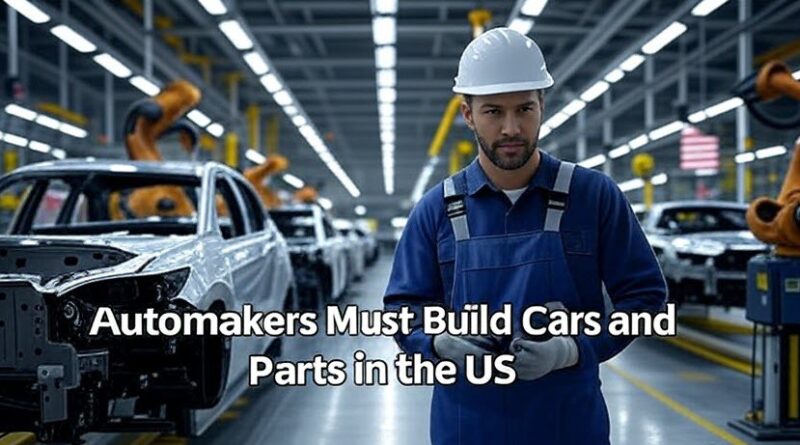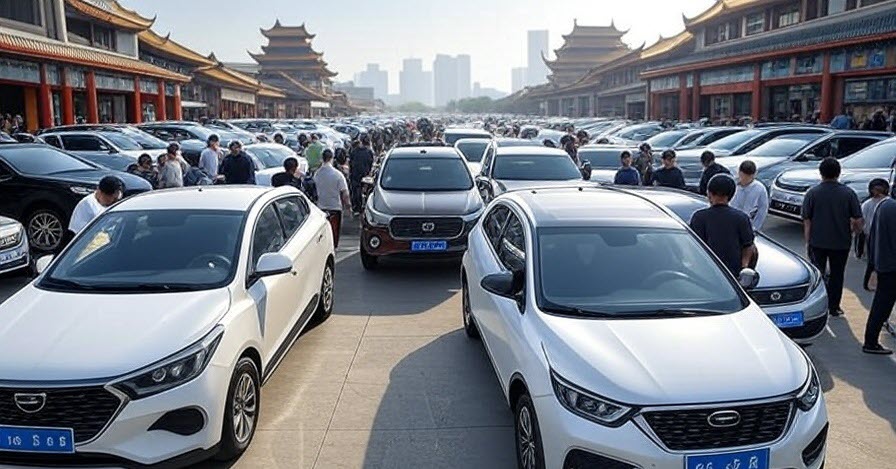Trump Says Automakers Must Build Cars and Parts in the US
Estimated reading time: 3 minutes
In a bold statement that could reshape the future of the auto industry, former President Donald Trump declared that if re-elected, automakers – including Tesla – must manufacture vehicles and components within the United States. This announcement is part of his ongoing campaign theme focused on American jobs, domestic production, and reduced dependence on foreign supply chains. Here’s what Trump’s statement could mean for Tesla, legacy carmakers, and the broader auto manufacturing landscape in the U.S.
Trump’s Push for American Auto Production
At a recent campaign event, Trump stated:
“We will require all future cars, trucks, and auto parts to be built right here in the USA – no exceptions.”
This aligns with his previous America First policy stance, aiming to revitalize domestic industries, protect American jobs, and counterbalance global manufacturing reliance, particularly on China and Mexico.
Tesla, often praised for its innovation and job creation, was specifically mentioned – suggesting even industry leaders wouldn’t be exempt from such a mandate.
Why Automakers Are Being Targeted
Trump’s renewed attention on car manufacturing stems from several factors:
- Concerns over the U.S. trade deficit
- Supply chain disruptions during the COVID-19 pandemic
- China’s dominance in EV battery production
- Growing public demand for economic security and local jobs
With electric vehicles playing a pivotal role in the next phase of transportation, Trump’s vision includes ensuring that American automakers lead from American soil.
What It Means for Tesla
While Tesla is headquartered in the U.S. and operates massive facilities in Texas, California, and Nevada, it also runs a Gigafactory in Shanghai and sources components globally.
Trump’s comments could encourage Tesla to:
- Expand domestic battery and chip production
- Reduce reliance on international suppliers
- Shift more component manufacturing back to U.S. facilities
If Trump enforces new trade tariffs or domestic sourcing rules, Tesla may need to adjust its global supply chain strategy, which could affect pricing and delivery timelines.
Impact on Other Automakers
Global brands such as Ford, General Motors, Toyota, and Volkswagen have deep roots in the U.S. but rely heavily on international supply chains for everything from electronics to lithium for batteries.
A domestic production mandate would likely require:
- Significant investments in U.S.-based manufacturing plants
- Restructuring of existing supplier agreements
- Potential price increases due to higher domestic production costs
Economic Implications
Potential Benefits:
- Increased domestic manufacturing employment
- Improved supply chain security
- More EV and battery innovation in the U.S.
Potential Challenges:
- Higher costs for automakers and consumers
- Disruption of established international trade partnerships
- Risk of retaliation or conflict with WTO regulations
Can This Policy Be Enforced?
While Trump could introduce tariffs, tax incentives, or executive orders to promote local production, a blanket requirement would likely face resistance in Congress and courts. Trade agreements such as USMCA and WTO rules may limit the extent of what can be enforced.
Nonetheless, even the threat of such regulation could influence automaker decisions moving forward.
Conclusion
Trump’s push for automakers – and especially Tesla – to build all cars and components in the United States has added new energy to the reshoring and economic nationalism debate. While some see it as a long-overdue move to rebuild American industry, others warn it could increase costs and strain international relationships. One thing is clear: if implemented, this shift could dramatically change how, where, and by whom cars are made in the years ahead. Regardless of the tariffs used cars will always be a thing, before buying a used car a professional pre-purchase inspection (PPI) is a must. It helps uncover hidden issues.




